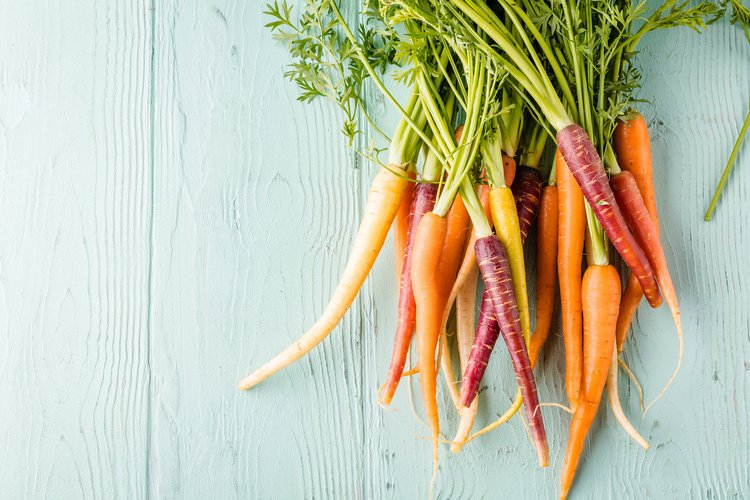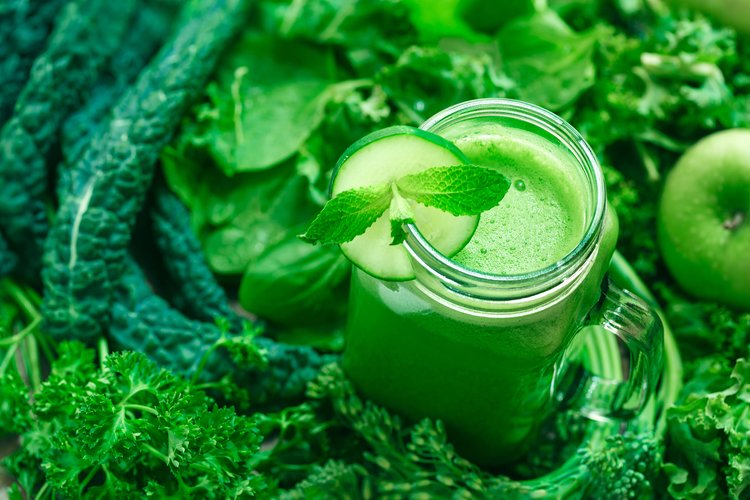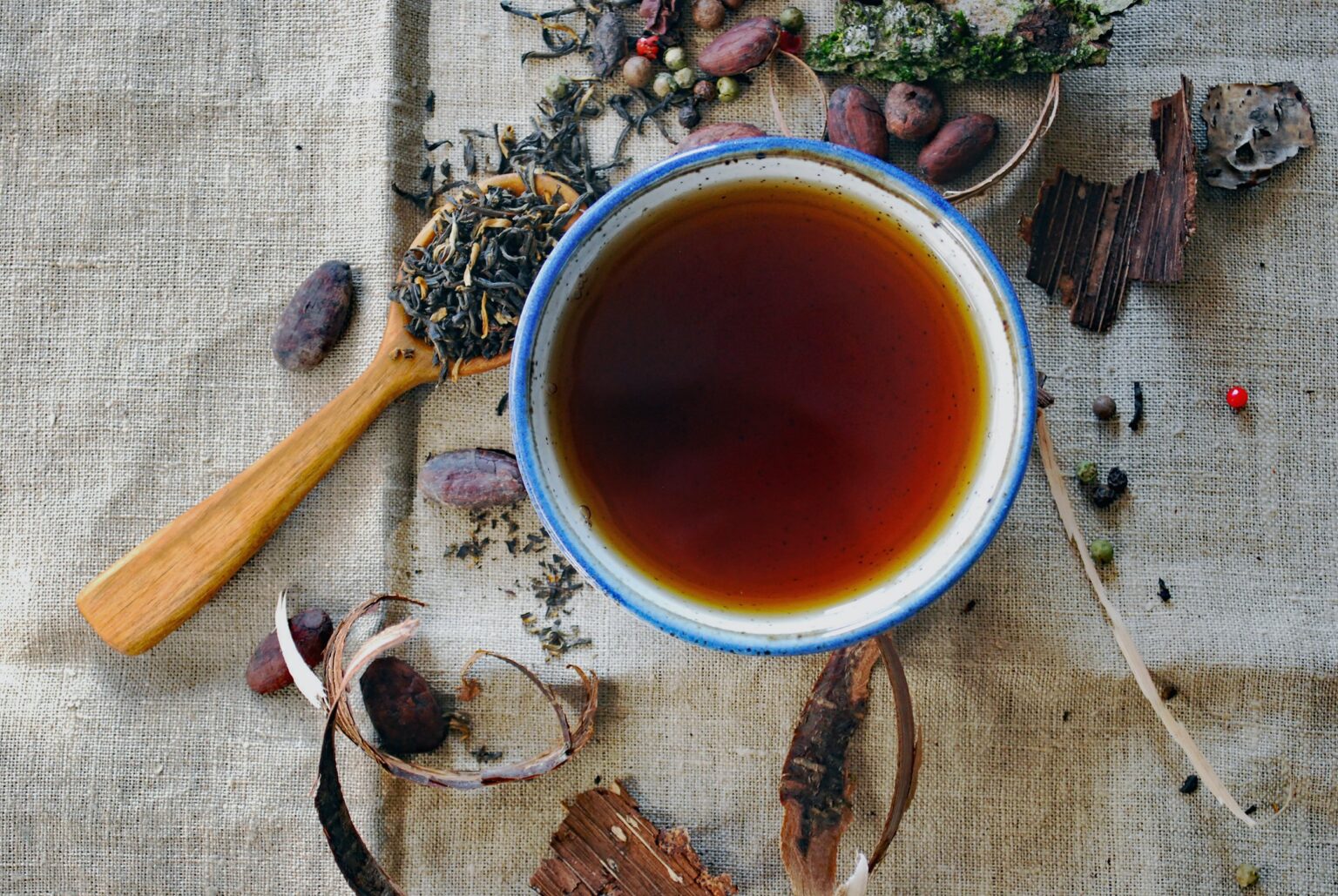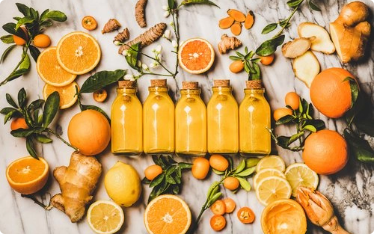There are a tremendous variety of spring vegetables that are now available. Now is also a great time to press reset on your health and overall wellness by increasing your intake of foods that are known to reduce inflammation. Anti-inflammatory foods are those that help to reduce inflammation throughout the body. Chronic inflammation is a key factor in the development of heart disease and many other chronic conditions. Fortunately, there are many anti-inflammatory foods that can be enjoyed in the springtime. So here are the top 5 anti-inflammatory foods commonly found in spring. Each is packed with both antioxidants and anti-inflammatory nutrients that are fresh additions to your diet, and if you are interested in downloading a free printable list of anti-inflammatory foods, click here
Our Top 5 Anti-inflammatory Foods During Spring
1. Asparagus
The anti-inflammatory benefits of asparagus are well worth that strange, characteristic smell we all know unless you are the lucky few who can’t smell it due to a genetic variation in your scent cells (olfactory cells). The most unique benefit of asparagus is that it contains glutathione, which is a compound that helps destroy carcinogens, substances that can promote cancer. Glutathione has also been found to slow the progression of cognitive decline due to aging. There are a few studies that have found that asparagus reduce inflammation and thereby helps decrease the risk of heart disease. Asparagus has several other nutrients that are both anti-inflammatory and antioxidants, all of which promote wellness and are well worth that annoying smell. Check out the video below to see a few great ways that Gordon Ramsay likes preparing asparagus.
2. Peas
If looking for a light addition to your salad or dinner, peas are a great option because of their numerous anti-inflammatory nutrients that help support your health. Peas have an abundant amount of manganese, zinc, calcium, and copper. Manganese is crucial, in addition to vitamin B12 and folate, to our nervous system. Many people aren’t aware that manganese has a part in converting “superoxides” (the worst of the worst free radicals) into non-harmful compounds. Vitamin B12 has a significant role in supporting the bone marrow, specifically in preventing the development of certain types of anemia. With low vitamin B12 levels, there is an increased risk for chronic inflammation with experiences of fatigue and neurological issues. Zinc is also found in peas and made a comeback to fame during the pandemic given its beneficial role in ramping up our immune system. While calcium is most notable for supporting bone health, it is especially important in perimenopausal and menopausal women’s wellness in lowering the risk of osteoporosis.
3. Carrots
Carrots are an obvious member of this list because of their powerful impact on reducing inflammation and their significant levels of antioxidants. Similarly, like green tea, carrots are rich in vitamin A which is fat-soluble, meaning that it is stored in your body’s tissue for later use if needed. Benefits seen with vitamin A are immune system support, vision, and helping maintain a healthy skin barrier. Lastly, for my readers that are expecting mothers or planning, vitamin A also has a role in both female reproductive health and fetal development, but as always you should check with your OB/GYN on recommended dietary intake. Carrots are oftentimes found on anti-inflammatory food lists because it is a key spring vegetable with a significant impact in reducing inflammation. Eat them raw, roasted, or in a soup or salad.

4. Artichokes
I love artichoke dip, but for a healthier option to add to your spring wellness reset, I suggest roasted artichokes instead. Artichokes are antioxidant-rich vegetables that are loaded with vitamin C and K, folate, and minerals such as phosphorus and magnesium. Many of these have a significant role in reducing inflammation, lowering the risk of heart disease, and mitigating the risk of chronic inflammation often caused by biological stressors. You will find that they are low in fat and high in fiber, similar to sweet potatoes which are extremely low in fat content and high in fiber. This is especially beneficial for decreasing the risk of heart disease, helping improve one’s digestive system, and improving blood sugar stability. Most importantly, artichokes contain quercetin, a flavonoid, which can offer a boost to your overall health and wellness because it is an antioxidant and has anti-inflammatory effects. Most recently quercetin has been studied for its potential antiviral abilities! A study published in 2021 showed that quercetin suppresses an inflammatory cascade that COVID-19 causes. Quercetin is found in numerous vegetables and fruits but especially artichokes.
5. Leafy Greens
Leafy greens such as kale, spinach, swiss chard, and arugula are great high-nutrient leafy greens that are packed with antioxidants and anti-inflammatory nutrients. Leafy greens are loaded with fiber, and this is helpful in aiding in the digestion of those hearty lingering winter dishes. They are perfect to add to your morning smoothie, salad, or wrap. The boldest benefit is that they contain a compound called beta-carotene which is converted by our body into vitamin A. Vitamin A is crucial for vision health, healthy skin, and repairing our immune system after typical winter colds. I definitely recommend adding a few leafy greens to your diet if you’re trying to give a boost to your overall physical wellness. Leafy greens also contain vitamin C. Vitamin C has been shown to reduce inflammation by reducing inflammatory markers (CRP, IL-6) in people with hypertension and diabetic obese adults. Leafy greens along with fatty fishes like salmon, mackerel, and tuna are a perfect anti-inflammatory dinner option. The amount of omega-3 fatty acids in fatty fish is significant in reducing the risk of heart disease but with the addition of leafy greens, you could have a perfect anti-inflammatory combination that will help promote longevity and decrease your risk of chronic inflammation.










